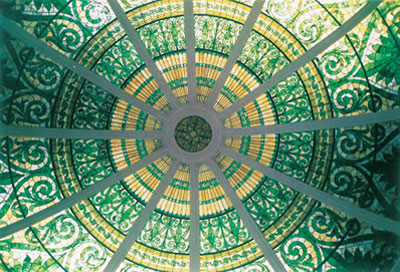All Nonfiction
- Bullying
- Books
- Academic
- Author Interviews
- Celebrity interviews
- College Articles
- College Essays
- Educator of the Year
- Heroes
- Interviews
- Memoir
- Personal Experience
- Sports
- Travel & Culture
All Opinions
- Bullying
- Current Events / Politics
- Discrimination
- Drugs / Alcohol / Smoking
- Entertainment / Celebrities
- Environment
- Love / Relationships
- Movies / Music / TV
- Pop Culture / Trends
- School / College
- Social Issues / Civics
- Spirituality / Religion
- Sports / Hobbies
All Hot Topics
- Bullying
- Community Service
- Environment
- Health
- Letters to the Editor
- Pride & Prejudice
- What Matters
- Back
Summer Guide
- Program Links
- Program Reviews
- Back
College Guide
- College Links
- College Reviews
- College Essays
- College Articles
- Back
Niqab Ban: A Discriminatory Injustice
Worldwide, disputes and debates have erupted on whether muslim women should be able to wear Niqab or Burka, which is a full-face veil hiding every body part except for the eyes, and is used in public settings. This outburst of controversy is directly linkable to France and now Belgium, which have banned the wearing of full-face veils and any object that would hide one’s face from the public. Many other European countries, such as Germany and the United Kingdom, are also considering to put the same ban through their legislation. Even though the ban would still allow the use of Hijabs (head scarves or wraps that show the face), such a ban is a discriminatory injustice towards one specific group of people (the nation of Islam) and it also violates Muslim women's rights.
The argument for banning full-face veils (Niqab & Burka) is that it makes people uncomfortable (according to British leader of the House of Commons, Jack Straw), it poses a public security risk, and the Niqab/Burka is “a symbol not of liberation but of repression and segregation” (as stated by conservative MP Sarah Wollaston). It is highly inadequate to make a ban based on such claims because the majority of reasons are based upon opinions, not facts. To illustrate this first issue, if a vast amount of people were to find the Christian/Catholic cross “uncomfortable”, would it be banned? No, because that viewpoint does not affect the right to freedom and religion that people have, which is practiced in almost all of Europe (including France, Belgium, the UK, and Germany). The same goes for the belief that the Muslim full-face veil is a form of “repression and segregation”. Many Muslim women feel that wearing the Niqab/Burka empowers them and makes them stronger. They say it “makes me feel confident” and rather than judge a book by its cover, people should “judge me based on what's in my head”, versus the outside (according to The New York Times). Therefore, matters of opinion should not determine one’s rights, regardless of religion.
As for the third problem mentioned previously, most Muslims were found (through many interviews, polls and personal testimonies) to comply to security rules when needs arise. Niqab wearing Muslim women take off their full-face veils when going through airport security, the DMV (license pictures), teaching in school or working as a nurse, required identifications, etc. They comply to the arisen situations and it’s rare to find violent reactions. The only thing a ban would do is discriminate against the Muslim people and create hostility. If anything, this fuels the Jihad and Taliban groups (terrorist gangs in the name of Islam) to recruit more people by using the ban as an example of why Europe is hateful and disregards Muslim customs. Not only would such a ban destroy Muslim opinions of European countries, but it would take away the fundamental right that Muslim women have to their own bodies, their own religious practices, and freedom of expression.

Similar Articles
JOIN THE DISCUSSION
This article has 0 comments.

What inspired me to write this piece was the feeling of responsibility. As a young woman (teenager), my outlooks could become the voice of America, and the world, with the passing of time; meaning I have a duty to do my best. Is my best standing by and watching young women worldwide being discriminated against for a cultural garb? No, and here you find me today.